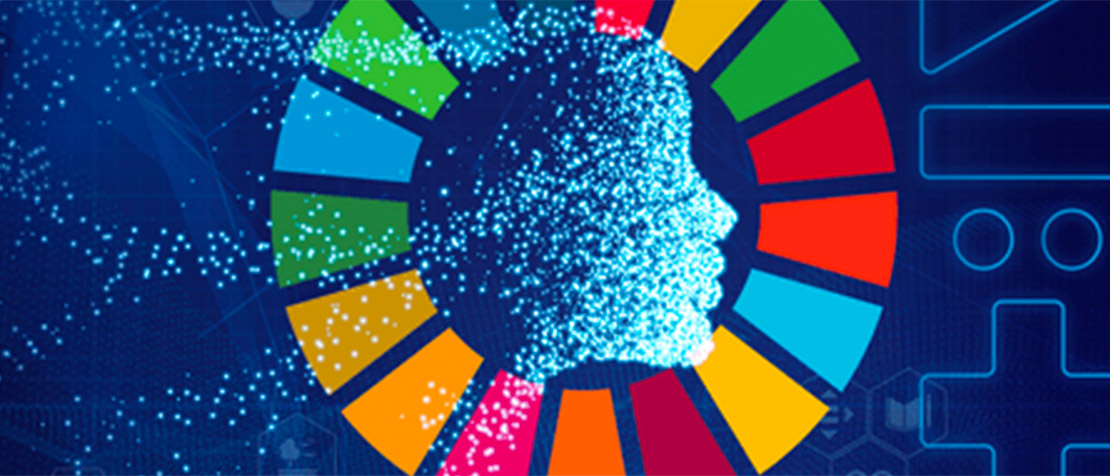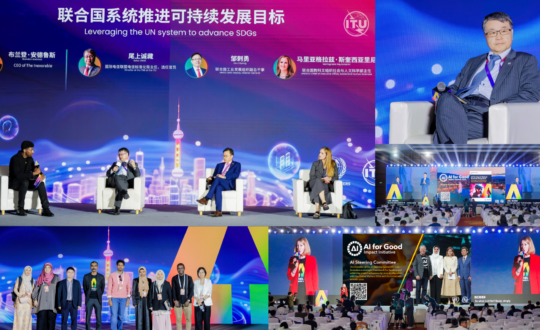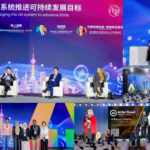Advancing the global goals with artificial intelligence: UN Deputy Secretary-General

*The article below is adapted from remarks delivered in New York this week at the “Advancing the global goals with artificial intelligence” event, which was part of the SDG Action Zone, held during the High-level week of the UN General Assembly, to be “a space to break out and engage partners for transformative SDG action in new and innovative ways.”
Ladies and Gentlemen,
Dear friends,
And, indeed, I see many friends in the audience who have been with us on this journey for many years.
Welcome all to the SDG Action Zone. I thank Google for its role in making this event possible.
Artificial intelligence is one of the remarkable advances of our time.
The Sustainable Development Goals are the most inspiring blueprint for a better world ever adopted by the United Nations.
I welcome their intersection here at the United Nations this week.
Humanity has been debating the promises and perils of “intelligent robots” since the beginning of the 20th century and with the advent of big data, Artificial Intelligence truly began to have an impact.
While we may not have truly intelligent robots yet applications of artificial intelligence — from automation to predictive analytics to smart public services — have a vital role to play in accelerating the achievement of the SDGs.
At the same time, we know the risks: it can be used to widen the inequality gap, fuel discrimination and persecution, manipulate political processes, generate highly plausible false information, and disrupt the job market.
Last year, the Secretary-General established a high-level panel on digital cooperation precisely to advance global multi-stakeholder dialogue on how we can work better together to realize the potential of digital technologies for advancing human well-being while mitigating the risks.
“We consider the challenges and opportunities posed by AI to be central to the work we will be doing in the coming decades.”
Some of the recommendations of its final report that was issued this past May touch upon artificial intelligence. Most importantly, the Panel noted that autonomous intelligent system should be designed in ways that enable their decisions to be explained and humans to be accountable for their use. This is very important – especially on decisions related to life and death.
As is so often the case with technology, and perhaps most so with AI, the issue lies not just in how it works, but in how it is used.
For example, an AI-powered seed planting drone can turn a subsistence farmer barely able to feed her family into an entrepreneur with surplus goods. Yet a dozen of these same drones across the street at a larger farm could mean the loss of hundreds of jobs.
Before deploying artificial intelligence, it is important to ask whom it is empowering. Great care must be taken to address not only risks of deliberate misuse, but also unintended impacts on the poor and vulnerable.
We also need to recognize the disruptive impacts of AI and automation on employment in the world’s poorest communities.
In parts of Sub-Saharan Africa the loss of jobs may mean more than an impact on households, it may mean loss of lives.
Within the United Nations, we see three roles we must play regarding artificial intelligence.
First, we are already actively working to deploy — and in a number of cases, develop in house — applications of deep learning to allow us to work smarter, particularly in the domains of predictive analytics.
Second, through approaches such as innovation challenges and support for creation of digital public goods, we see an opportunity to support accelerated progress in areas critical to the achievement of the SDGs.
Third, we have an obligation to leverage our convening power and normative role to support the development of legal and ethical frameworks for the governance of AI on a global scale.
In short, we consider the challenges and opportunities posed by AI to be central to the work we will be doing in the coming decades.
Ladies and Gentlemen,
We must, as a global community, build on existing efforts – in both the public and private sectors – and accelerate responsible innovation in areas where we already know there is huge potential for impact.
We have less than 11 years left until 2030.
Let us join forces in harnessing the incredible potential of Artificial Intelligence for a Decade of Action for delivery of the SDGs.
Thank you.











